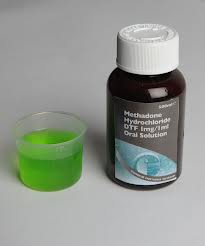What to Expect in Methadone Maintenance Treatment
People addicted to opiate drugs, such as heroin or any number of prescription pain medications, often face unexpected challenges when deciding to break the addiction habit. Whether a person has used for weeks, months or years at a time, the damage done to brain and body processes requires time to heal. Add to this the ongoing cravings that can persist long after a person stops using, and getting help for an opiate addiction may be the only way a person can break free from using drugs.
Methadone maintenance treatment programs offer a range of treatment approaches for helping recovering addicts overcome opiates’ hold on their lives. With methadone medication therapy as the focal point, participants can start to work on the underlying issues that drive addiction behaviors.
How Methadone Maintenance Treatment Works
Opiate drugs can have crippling effects on the brain’s natural chemical neurotransmitter processes. In effect, the brain interacts with opiates in much the same way it interacts with its own neurotransmitter chemicals. Over time, the brain readily replaces its own neurotransmitter processes with opiates’ effects to the point where it becomes dependent on the drug. Once dependency and cravings set in, it’s only a matter of time before a person starts to belief he or she needs the drug to function in everyday life. At this point, addiction has taken a firm hold on a person’s life.

Methadone is typically administered once daily and is always taken at a clinic.
Methadone, another opiate-based drug, works a bit differently than other opiates. Methadone has a long-term effect compared to other opiates. It can also be prescribed at a level that prevents the typical “high” effect that comes with opiate abuse. The methadone maintenance treatment approach uses methadone to help recovering addicts overcome uncomfortable withdrawal effects, according to the Columbia Psychiatry resource site. As withdrawal effects are a big reason why so many recovering addicts relapse, methadone maintenance treatment eliminates this obstacle and enables a person to remain in recovery.
Rehabilitation
For someone battling an opiate addiction, treating the physical withdrawal and cravings is only half the battle. The psychological and emotional aspects of addiction will continue to drive addictive behaviors without needed treatment. In effect, the rehabilitation component plays an equally vital part in helping recovering addicts remain drug-free.
According to the University of Delaware, methadone maintenance treatment uses psychotherapy and group counseling work to help recovering addicts confront the issues that drive them to seek escape through drug use. Ultimately, it’s the combined effects of methadone medication therapy and rehabilitative treatment that makes the methadone maintenance treatment approach so effective.
Methadone Maintenance Treatment Program Options
Methadone maintenance treatment programs offer a wide variety of treatment approaches that vary in as many different ways, though the majority of programs operate on either an inpatient or outpatient basis. Someone who’s struggled with opiate addiction for a long time most likely requires the highly structured environment offered through inpatient programs.
Someone who’s in the early stages of addiction may be able to benefit from an outpatient program; especially if family and work responsibilities are an issue. Overall, it’s the severity of the addiction that determines which type of treatment option will work best.